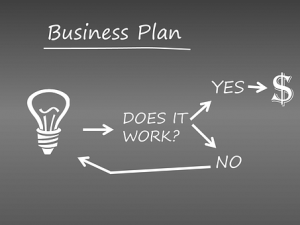Entrepreneurism and The Debt Conundrum

It’s always tough to start a business; and unless you are extremely fortunate, working capital and related debt are always the biggest issues. Once you go through any available personal savings and hit up family and friends for whatever they can contribute but still find yourself short, what’s your next step.
Of course, every business needs money to get started. Even a one-man band has necessary expenses – office equipment, website domain registration/creation/hosting, living wages are base examples.
The overall cost to start an average business is about $30,000, more than most people have available to invest. {By the way, “available” means you could just as easily put a match to the money and not miss it.} In addition, operating expenses may very well exceed your revenue, particularly in the startup and early growth stages.
Many Options for Capitalization – But Every Fund-Raising Effort has Potential Consequences
Angel Funders and Venture Capitalists – assuming you meet their stringent requirements – are certainly possible sources. But be prepared to give up a sizeable chunk of your fledgling company. Angels, for example, frequently demand a majority stake for minimal dollars invested. When the shouting’s over, don’t be surprised if you only still own 8% to 12% of your company.
 You may be able to secure a business loan, or a line of credit; but if your organization has no documented revenue stream(s), banks may not be willing to extend that credit.
You may be able to secure a business loan, or a line of credit; but if your organization has no documented revenue stream(s), banks may not be willing to extend that credit.
Another option is to go into personal debt, accumulating personal loans or maxing-out your credit cards as you build the business. This could be a viable option if your personal credit score is 700+, but there are a several factors to consider.
Personal debt should not be your top priority. Safer, more reliable methods exist. For a quantifiable product or service, crowdfunding is a good possibility. If not, try seeking funds from other investors and have a go at a business loan. Even if you don’t think you want to travel this road, make sure you get familiar with the advantages and disadvantages of these funding options before saying yes or no.
Understand What You’re Getting Into
By definition, a personal loan means you are personally liable for paying off this debt. If your business bites the bullet, you are still obligated to repay the loan. Remember, you also need to be aware of your company’s real chances for success. Statistically, only about half of new businesses are still around after five years; no matter how experienced the founders may be. Generally speaking, “sure things” don’t exist.
Eliminate as Much of Your Existing Debt as Possible
Adding thousands of debt dollars to what you already owe is not a smart move. Most startups do not turn a profit for some time – years is not unusual. If the interest is compounding, you may end up with more debt than you started with. This could have a negative impact on your credit score, making it that much harder to get a personal loan with decent terms. Therefore, good business (and common) sense tells us that getting rid of your existing debt first is the way to go before incurring further debt for your new business.
 SettleiTsoft – Free Debt Negotiation Software Platform Helps You Get Rid of Existing Debt
SettleiTsoft – Free Debt Negotiation Software Platform Helps You Get Rid of Existing Debt
SettleiTsoft is designed to help consumers in many ways. Accessible 24/7 via the Internet or Phone App, SettleiTsoft provides a variety of services – from its powerful financial management tools that will help you develop a livable budget; to its debt settlement abilities, which include allowing you to communicate with your creditors in a secure virtual environment.
In addition, the system has the capability of validating that the creditor is indeed authorized to collect the debt; thereby eliminating scammers who falsely claim the right to collect the consumer’s debt.
By utilizing SettleiTsoft, debtors are establishing this convenient and seamless electronic means of communication as their preferred negotiation method, which should then stop collection calls from creditors and allow the debt obligation to be amicably resolved. Since the software is easy to use with step-by-step instructions and topic-specific videos in every section, consumers can quickly become their own super-efficient debt settlement agents and begin restoring their financial peace of mind.
To learn more about this free debt settlement software platform, its convenient financial management tools, and how it may help anyone with monetary problems, visit www.settleitsoft.com.
Bottom line: Lose as much of your existing debt as possible and try to incur minimal (if any) personal debt when starting your new business.



 Login
Login






